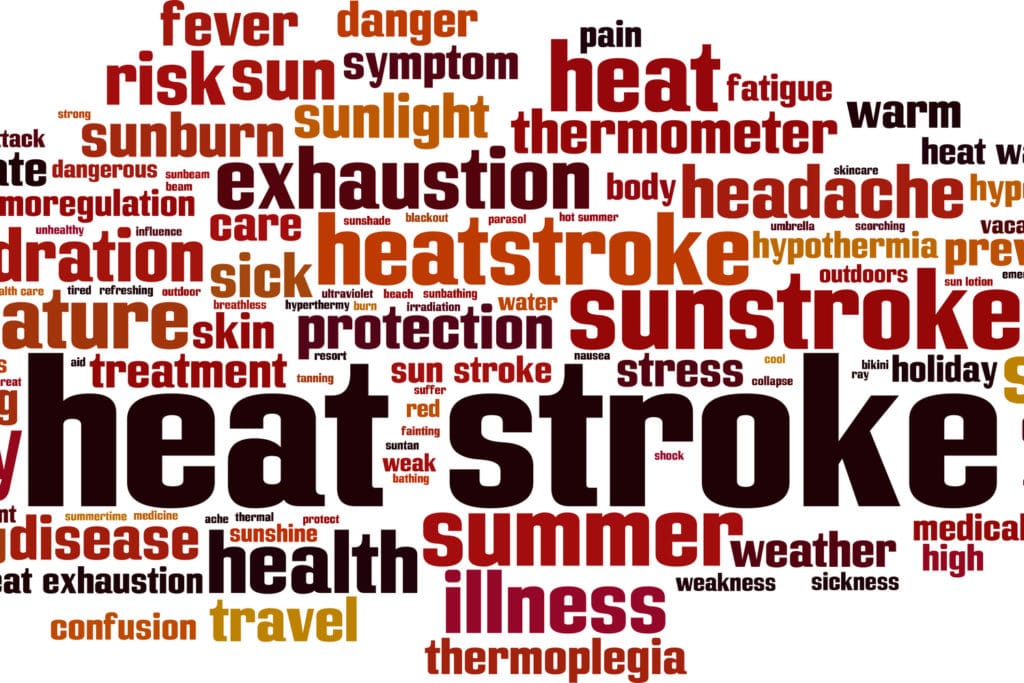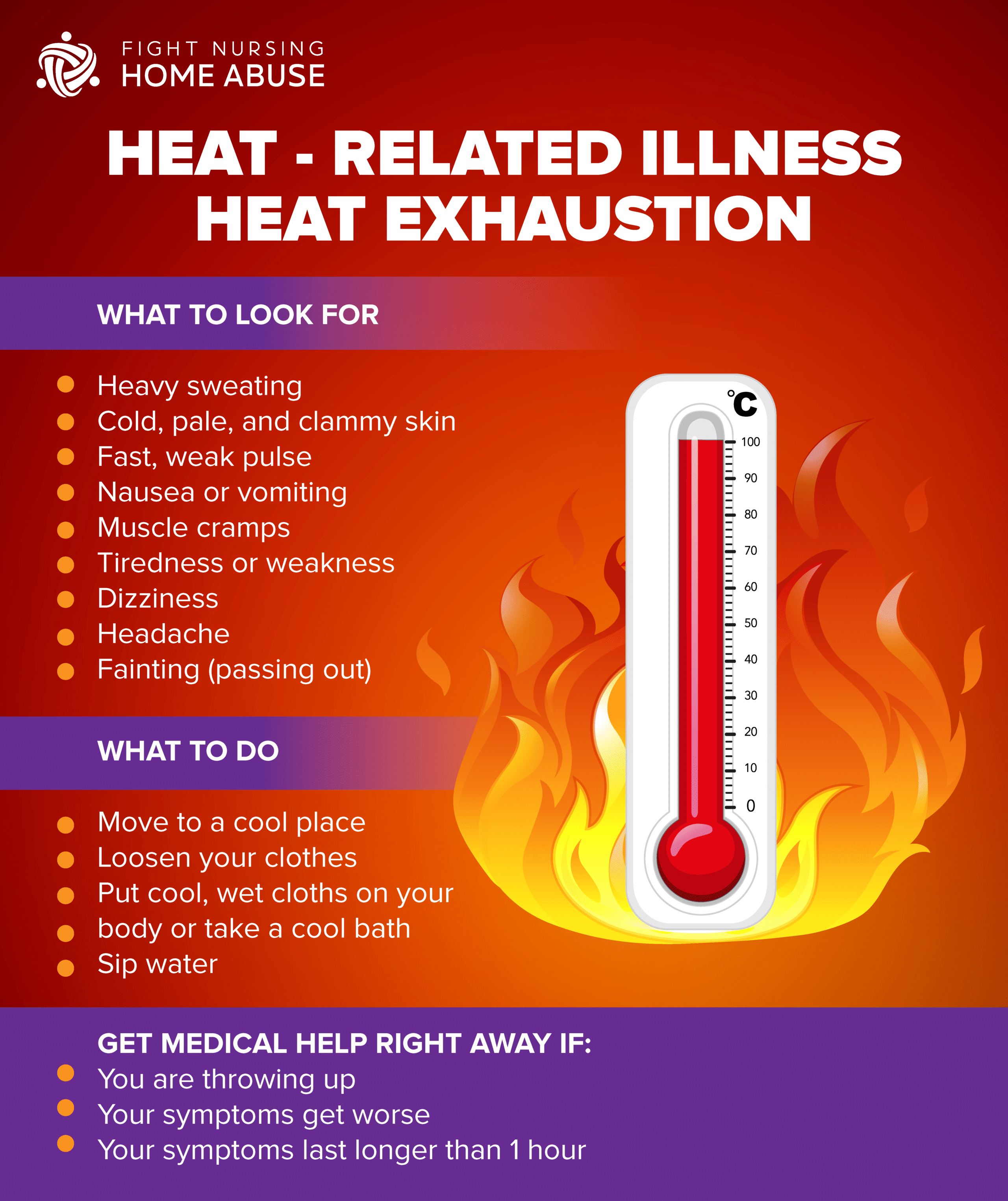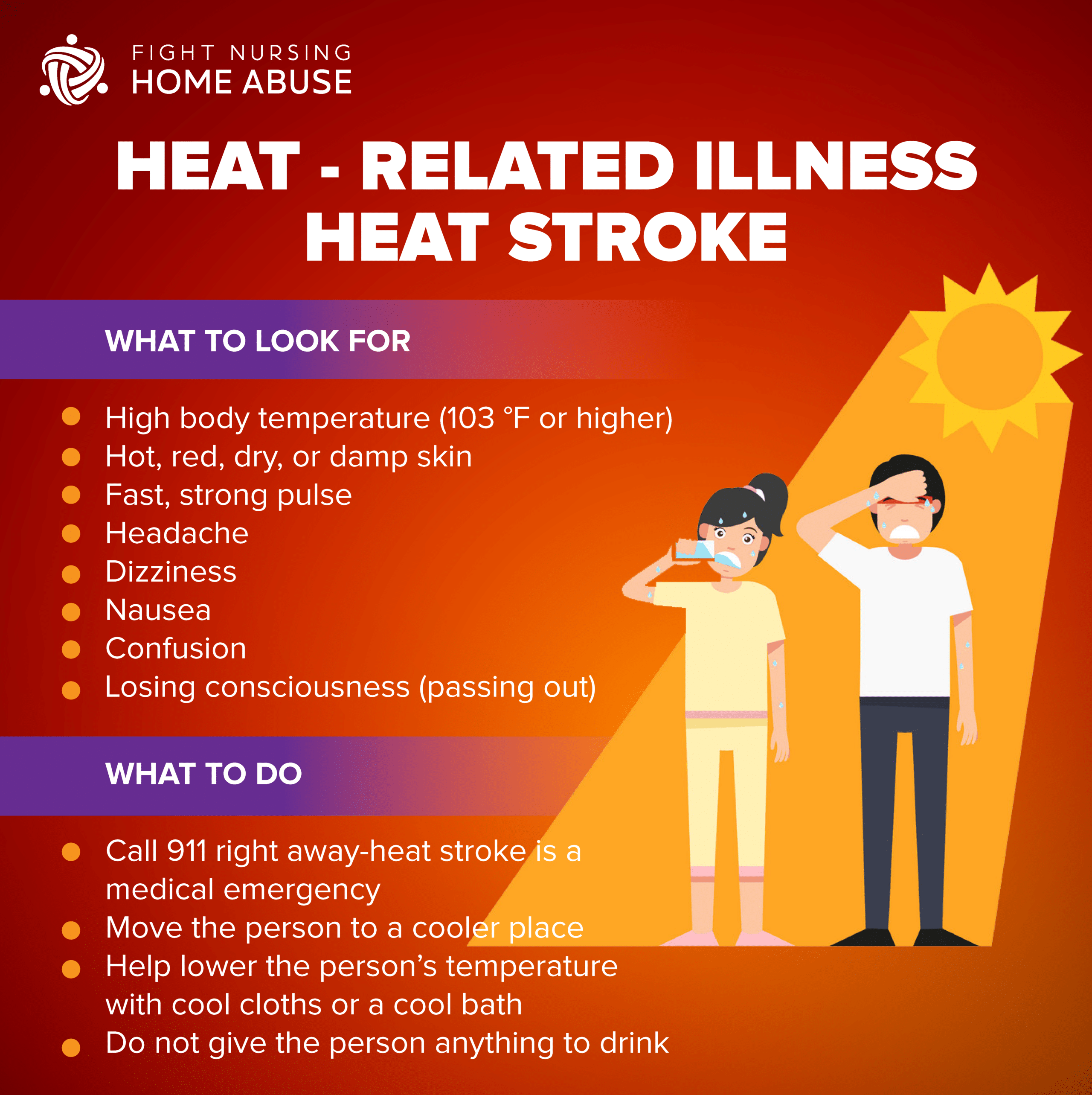Heat Stroke and Heat Exhaustion

When temperatures rise, nursing homes must keep residents cool and comfortable. Failing to keep them safe from the potentially dangerous heat can result in serious injuries or death due to heat stroke and heat exhaustion.
Get help from a nursing home abuse lawyer if you or someone you know is a victim of heat stroke and heat exhaustion. Call Nursing Home Abuse Center at 1-866-548-9636.
Understanding Heat Exhaustion

Also, despite the heat, their bodies may have cool, moist skin covered in goose bumps.
Any of these signs can come on instantly or develop over a period of time. In many cases, symptoms appear after dramatic changes in temperature or extended periods of physical activity. Heat exhaustion may develop after several days of exposure to high temperatures and inadequate replacement of fluids.
Understanding Heat Stroke
When the body reaches or exceeds 104 degrees, a person may experience heat stroke, which is considered one of the most serious types of heat injury. Dehydration, along with extended exposure to extreme temperatures often leads to heat stroke which is when the body’s temperature management system fails. If not treated promptly, heat stroke may cause damage to the kidneys, heart, brain and muscles, and lead to long-term serious medical issues or death.

Most importantly, those suffering with heat exhaustion sweat profusely. However, once a person’s body rises to level of heat stroke, they stop sweating.
Older Individuals Are at a Greater Risk of Heat Injuries
Older people are especially vulnerable to heat stroke because:
- Their bodies have a tough time adapting to temperature shifts.
- They often take prescription medication that affects their ability to control their body temperatures.
- They have chronic health conditions that impact the way their bodies react to heat.
Ways to Prevent Heat Injuries in Nursing Home Residents
Due to the dangers associated with heat stroke and heat exhaustion, nursing home staff must take necessary steps to prevent these injuries. Learning the signs and symptoms and how to address them is key.
When temperatures climb, nursing home staff should:
- Make sure residents dress in light, loose-fitting clothes and wear hats to shade their faces in the sun.
- Make sure residents stay hydrated by encouraging them to drink even when they are not thirsty. Residents should avoid beverages that contain caffeine or alcohol.
- Stay indoors during the hottest part of the day or when the sun’s rays are the strongest, which is between 10 a.m. and 4 p.m.
- Encourage residents to take cool showers or baths to keep their bodies cool.
- Limit physical activities when temperatures are at their highest.
- Provide fans, misting bottles and other items that can help them stay cool.
Steps to Take When a Resident Has Heat Stroke
If a nursing home suspects a resident is suffering from heat stroke, staff should get the person medical attention immediately. While waiting for paramedics, the person should be moved indoors or to a shaded area. Unnecessary and tight-fitting clothing should be removed. To get their temperature down, the staff may also:
- Cool them down by giving them a shower or bath
- Place them close to air conditioning units or fans
- Use cool, damp towels or sponges on their neck and back
- Mist their skin with water bottles
- Offer them small sips of water or sports drinks that contain electrolytes
Get a Nursing Home Heat-Related Injury Case Review
If nursing home staff fails to take action to prevent heat stroke or exhaustion, or to get help for a resident suffering from a heat-related injury, the facility may be legally liable for your loved one’s death or injuries. Heat stroke and exhaustion due to a nursing home’s negligence may mean you are entitled to compensation for medical care, pain and suffering and other losses.
If you or a loved one suffered heat stroke and heat exhaustion due to a nursing home failing to take appropriate steps to prevent or treat heat-related injuries, a nursing home abuse lawyer can help you seek justice for your loved one and recover the compensation you need.
To request a free consultation with a nursing home abuse lawyer, call Fight Nursing Home Abuse at 1-866-548-9636. Or, fill out our online form to get started for FREE.


